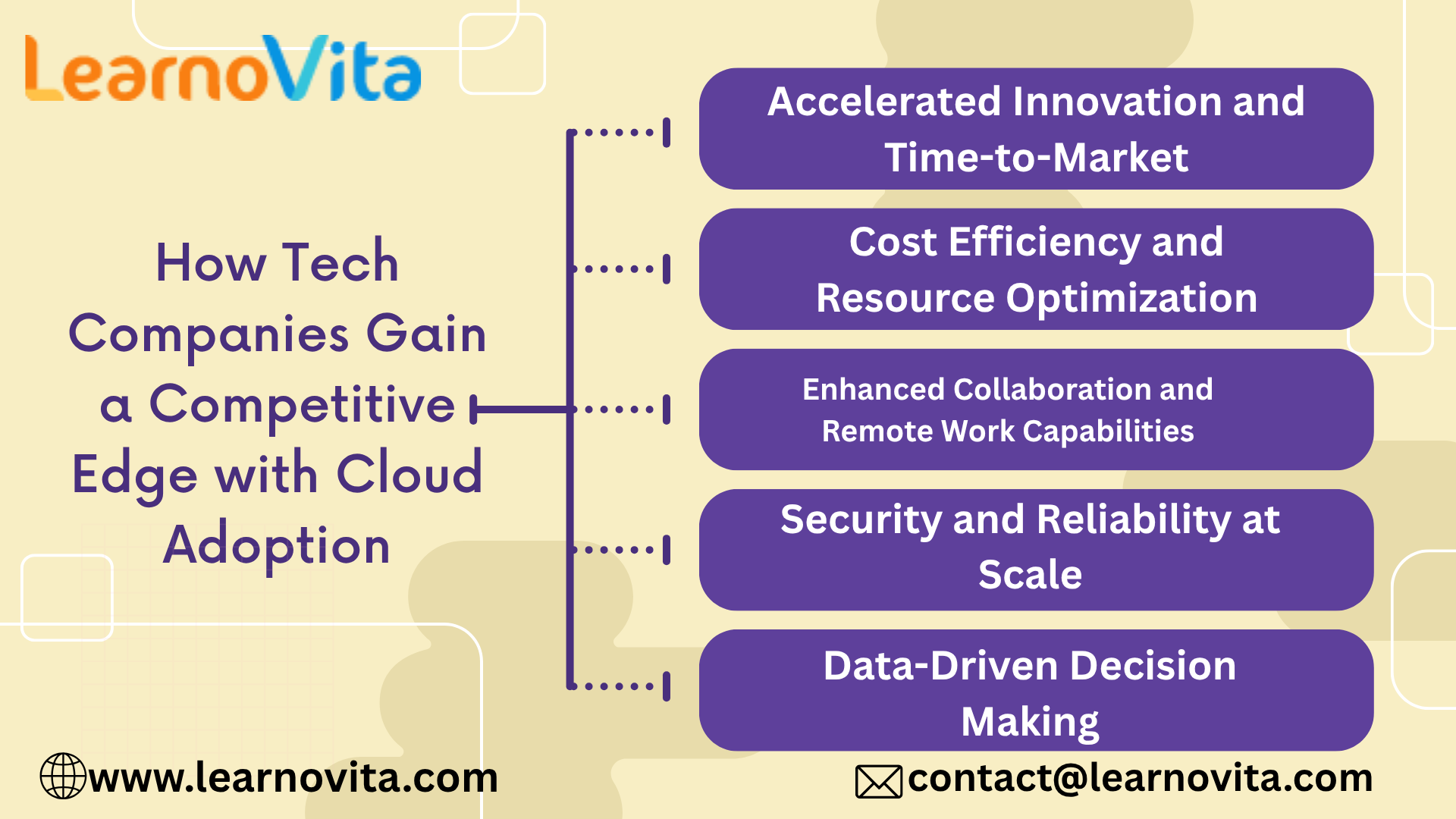Harnessing the Cloud: The Key to Competitive Growth in Technology

In today’s technology-driven world, cloud adoption has become a key strategy for companies looking to gain a competitive advantage. Beyond simply providing storage or computing power, the cloud computing course in bangalore enables businesses to innovate faster, operate more efficiently, and respond quickly to evolving market demands.
1. Accelerating Innovation
Cloud platforms like AWS, Microsoft Azure, and Google Cloud give tech companies the ability to develop, test, and deploy applications rapidly. By leveraging advanced technologies such as artificial intelligence, machine learning, and real-time analytics, companies can experiment, iterate, and bring new products and services to market faster than competitors, maintaining a leadership position in their industry.
2. Cost Efficiency and Scalability
Cloud adoption reduces the need for expensive on-premises infrastructure and maintenance. Its pay-as-you-go model ensures that businesses pay only for what they use, while automated scaling adjusts resources according to demand. These efficiencies lower costs and allow companies to reinvest savings into innovation, marketing, or talent acquisition, strengthening their competitive position.
3. Enhancing Collaboration and Flexibility
Cloud-based tools such as Google Workspace, Microsoft 365, and Slack enable seamless collaboration across distributed teams. Employees can communicate, share files, and manage projects in real time, regardless of location. This flexibility boosts productivity, encourages innovation, and attracts top talent who value remote or hybrid work options.

4. Security and Reliability
Modern cloud computing online course providers offer robust security features, including encryption, multi-factor authentication, and continuous monitoring. High availability and disaster recovery solutions ensure business continuity and protect critical data. With strong security and reliability in place, tech companies can focus on growth and innovation with confidence.
5. Data-Driven Decision Making
The cloud allows companies to collect, process, and analyze large volumes of data quickly. Insights into customer behavior, operational performance, and market trends enable businesses to make informed, agile decisions. This data-driven approach enhances efficiency, strengthens strategies, and improves competitive positioning.
Conclusion
Cloud adoption is more than a technical upgrade it is a strategic advantage. By enabling faster innovation, reducing costs, improving collaboration, strengthening security, and supporting data-driven decision-making, tech companies can gain and sustain a competitive edge. Embracing the cloud is essential for long-term growth, market leadership, and success in the digital era.
- Questions and Answers
- Opinion
- Motivational and Inspiring Story
- Technology
- Live and Let live
- Focus
- Geopolitics
- Military-Arms/Equipment
- Sicherheit
- Economy
- Beasts of Nations
- Machine Tools-The “Mother Industry”
- Art
- Causes
- Crafts
- Dance
- Drinks
- Film/Movie
- Fitness
- Food
- Spiele
- Gardening
- Health
- Startseite
- Literature
- Music
- Networking
- Andere
- Party
- Religion
- Shopping
- Sports
- Theater
- Health and Wellness
- News
- Culture

